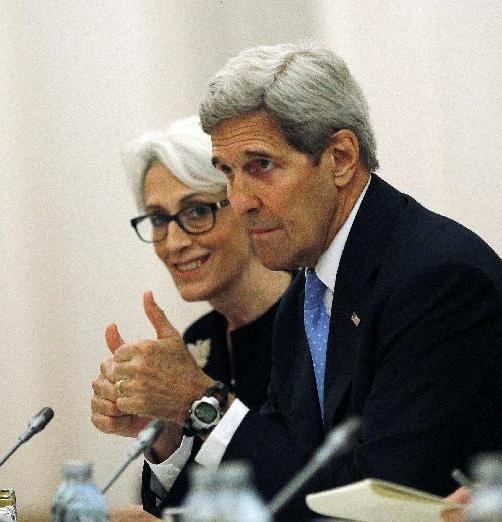Iran talks at impasse amid bickering, extended for 3rd time
The Iran nuclear talks shifted Friday to a blame game, as Iran’s foreign minister accused the United States of shifting its demands and dismissed a warning that the U.S. was ready to quit the negotiations. Hours after his comments, Iranian Foreign Minister Mohammad Javad Zarif met again with U.S. Secretary of State John Kerry for another attempt at resolving the differences standing in the way a landmark deal that offers Iran sanctions relief in exchange for long-term, verifiable curbs on nuclear programs that Tehran could use to make weapons. Afterward, Kerry spoke of progress, while acknowledging a “couple of very difficult issues” still blocking a deal. And despite the sharp public comments by both sides, he said the negotiating atmosphere was “very constructive.”
If you drive the talks into a dead end then it will be you who will be committing a strategic mistake.
Iran’s parliamentary speaker Ali Larijani
Still, the sense of drift grew. A senior U.S. official said the preliminary April deal that set up the present negotiations had been extended until Monday. That effectively set a fourth target date for a final accord that initially was supposed to be sealed by June 30. The tougher rhetoric Friday mirrored the frustrations by the sides as the current round of talks entered its 14th day. After blowing past two extensions, negotiators had hoped to wrap up the talks by Friday, but Zarif’s comments cast doubts that agreement was near. The sides had hoped to seal a deal before the end of Thursday in Washington to avoid delays in implementing their promises. By missing that target, the U.S. and Iran now have to wait for a 60-day congressional review period during which President Barack Obama cannot waive sanctions on Iran. Had they reached a deal by then, the review would have been only 30 days.

Politics iran nuclear